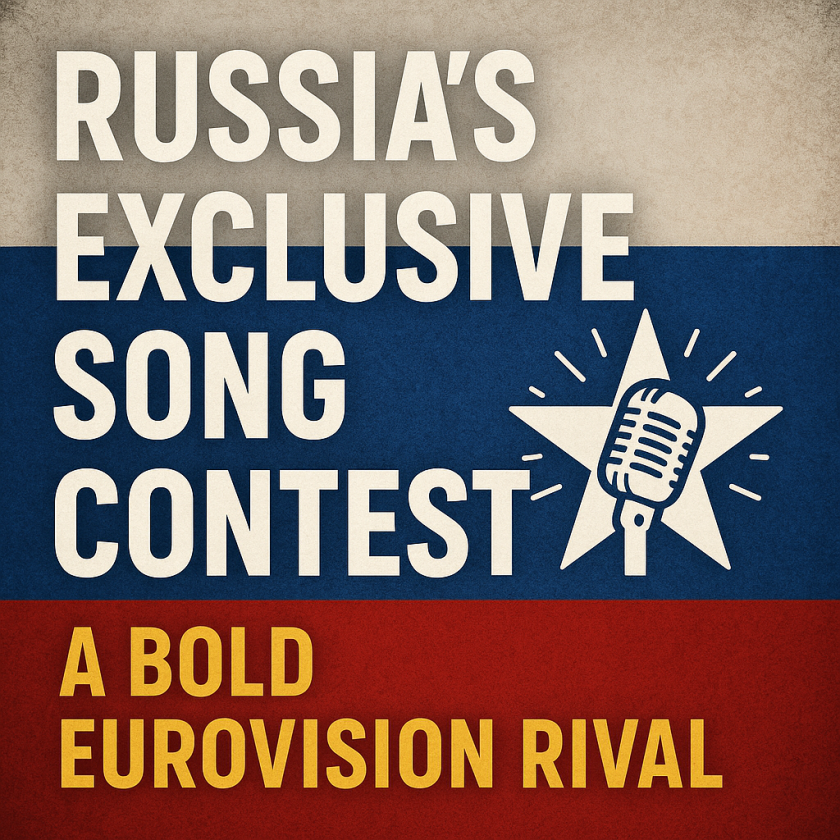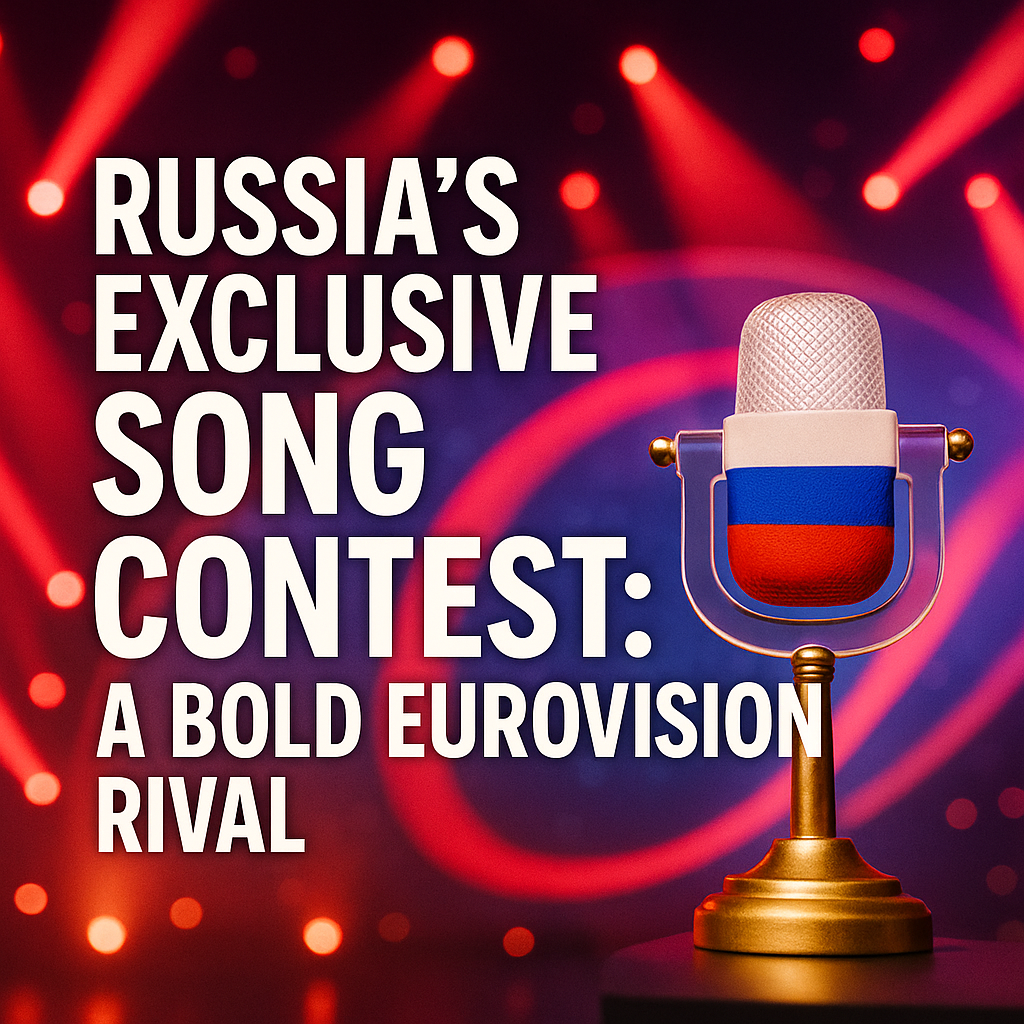Russia’s Exclusive Song Contest: A Bold Eurovision Rival
Russia’s Exclusive Song Contest: A Bold Eurovision Rival
In a surprising move that has sent ripples through the music world, Russia has launched its own song contest as a bold alternative to Eurovision. This development follows Russia’s increasing estrangement from Western cultural platforms, particularly since its exclusion from events like Eurovision due to geopolitical tensions. The emergence of this new contest not only reflects Russia’s desire to reclaim its cultural narrative but also raises questions about the broader implications of cultural isolation.
The Rise of Russia’s Own Musical Showcase

Russia’s decision to organize an independent song contest signals a strategic pivot in how the country engages with cultural events internationally. This new contest, positioned as a domestic celebration of artistry, aims not only to provide a platform for local talent but also to serve as a counter-narrative to Eurovision, which has often been critiqued for its Western-centric view of music culture.
Reports indicate that the contest is designed to celebrate Russian diversity and talent, featuring artists from various regions and genres within the country. This inclusive approach attempts to foster a sense of national pride amidst ongoing global scrutiny. Ksenia Shulman, a leading figure in the contest’s organization, stated in an interview, “This is our moment to shine and showcase the richness of Russian music and culture on our own terms.”
The Cultural Implications of Isolation
While Russia’s new contest is a symbolic effort to celebrate national identity, it also sheds light on the complex dynamics of culture in a politically charged environment. The Eurovision Song Contest has been an arena for fostering connections among nations through music, often transcending political divides. By standing apart, Russia’s contest risks further isolating the country from the broader European cultural landscape.
Conversely, proponents argue that this separation offers an opportunity for alternate artistic expressions that reflect the Russian experience without the constraints imposed by Western expectations. Some believe this can lead to a vibrant, self-defined cultural exchange, although skeptics warn it may reinforce echo chambers that isolate Russian audiences from global dialogues.
Mixed Reactions from the Global Community
The reception of this new Russian song contest has been mixed internationally. While some artists and commentators have praised the initiative for promoting local talent and allowing for artistic freedom, others view it with skepticism, seeing it as a tool for state propaganda. Critics argue that without the influence of international collaborations and the diversity offered at Eurovision, this contest may lean towards a sanitized representation of culture that aligns closely with state interests.
Reports from various outlets highlight the contrasting sentiments—from enthusiasts excited about the potential of undiscovered artists to critics concerned over artistic censorship. For instance, an analyst from Al Jazeera noted that “music must speak freely to create a more connected world,” which raises the critical question: Is this contest merely a reflection of cultural nationalism, or can it be a genuine platform for artistic expression?
Conclusion: A Cultural Reflection in Motion
Ultimately, Russia’s new song contest highlights the intricate and multifaceted nature of cultural representation in our increasingly polarized world. While it offers a fresh platform for Russian artists, its implications extend beyond music, challenging how we understand national identity in relation to global cultural narratives. As the contest unfolds, it will be essential to monitor how it evolves and the responses it garners both domestically and internationally.
As we witness the launch of this independent initiative, one thing remains clear: culture continues to be an arena for expressing not just artistic talent but also national character amid a backdrop of complex geopolitical relations. Whether this bold new contender will enrich Russia’s cultural tapestry or deepen its isolation remains to be seen.




































